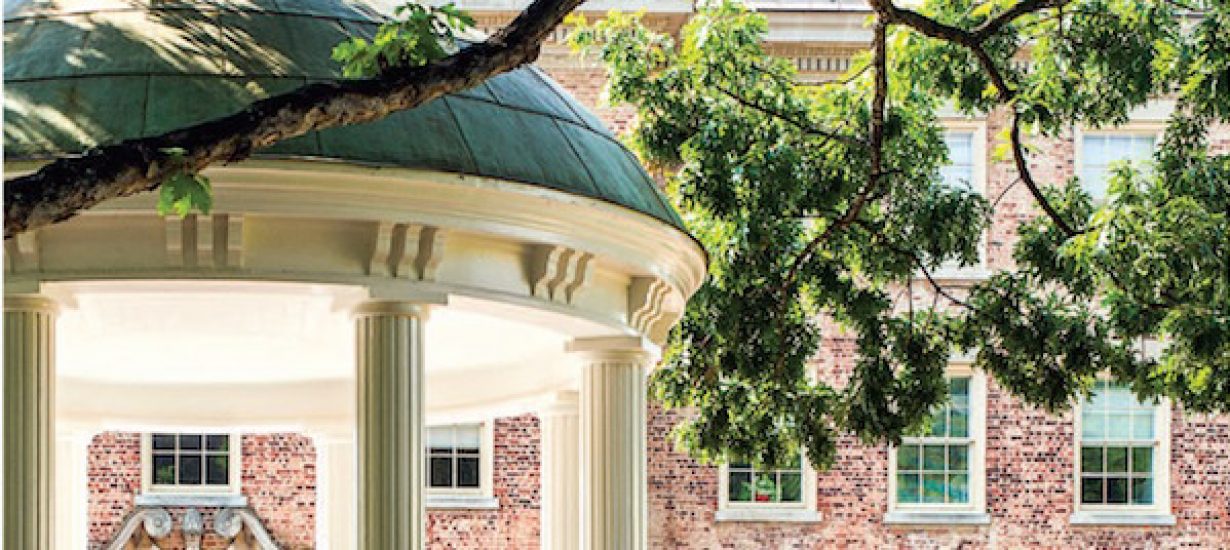NCAA Sets Procedural Meeting With UNC

The NCAA has scheduled a meeting with representatives of the University on Oct. 28 to go over UNC’s claims that the athletics governing body overstepped its jurisdiction in its allegations against UNC over the handling of a long-running athletics-academics fraud case.
The meeting in Indianapolis, where the NCAA is headquartered, will not cover “the merits of whether violations occurred,” according to a letter sent to Chancellor Carol L. Folt.
In its response to a notice of allegations in August, UNC officials told the NCAA that the allegations “refer to core academic issues of course structure, content, and administrative oversight that are beyond the scope of authority granted to the NCAA by its members. Such matters concern fundamental issues of institutional and academic integrity, not athletics compliance, and the University has addressed them with its accreditor.”
The response says that issues about which the NCAA knew when it issued an infractions report in 2012, included in the latest allegations, should have been dealt with at that time. It says that under the NCAA’s bylaws, “the NCAA’s prior decision on those matters is ‘final, binding, and conclusive,’ and issues raised in the previous investigation cannot support allegations” in the second notice.
The response also calls the NCAA out on its four-year statute of limitations, saying the amended notice is thereby untimely.
The August response was to an amendment to a 2015 notice of allegations that was necessitated when UNC self-reported some additional potential violations of NCAA rules in August 2015. The 2016 notice differed significantly from the one of the previous year.
The original notice said the AFAM department “created anomalous courses that went unchecked for 18 years.” The amended version narrows that to the period “from the 2005 fall semester and continuing through the 2011 summer semester,” and appears to shift the onus away from the relationship between AFAM and the Academic Support Program for Student-Athletes, stating, “individuals in the athletics and academic administrations on campus, particularly in the college of arts and sciences, did not sufficiently monitor” ASPSA and AFAM.
The original said the ASPSA used fraudulent courses offered by the AFAM department to help maintain the sports eligibility of academically at-risk athletes, “particularly in the sports of football, men’s basketball and women’s basketball.” The word “football” and the term “men’s basketball” do not appear in the amended notice. (Women’s basketball is specifically listed as having received “impermissible academic assistance.”)
The original notice said AFAM and the ASPSA conspired to make special arrangements for athletes to take classes that were found to have been fraudulent. The second notice put the blame on “institutional leadership,” stating that “those charged with providing academic support for student-athletes did not believe their actions or the actions of the AFRI/AFAM department were inappropriate.”
UNC’s response concluded: “It would be an unprecedented application of NCAA rules to impose a penalty on institutional employees, student-athletes, or sport programs that are not the subject of, or even referenced in, an allegation” in the amended notice.
The NCAA has invited the retired chair of the former Department of African and Afro-American Studies, Julius Nyang’oro; the department’s former administrator, Deborah Crowder ’75; and former faculty member Jan Boxill — and/or their lawyers — to attend the meeting via teleconference “to the extent that their cases might be impacted by the resolution of the procedural arguments.” The principals in the fraud scheme, Nyang’oro and Crowder; and Boxill, who left UNC after being implicated in helping guide athletes to the fraudulent classes, have no known “cases” against the University or the NCAA. Nyang’oro retired after the scheme became public, Crowder had retired before that, and Boxill resigned after UNC had announced its intent to fire her.
